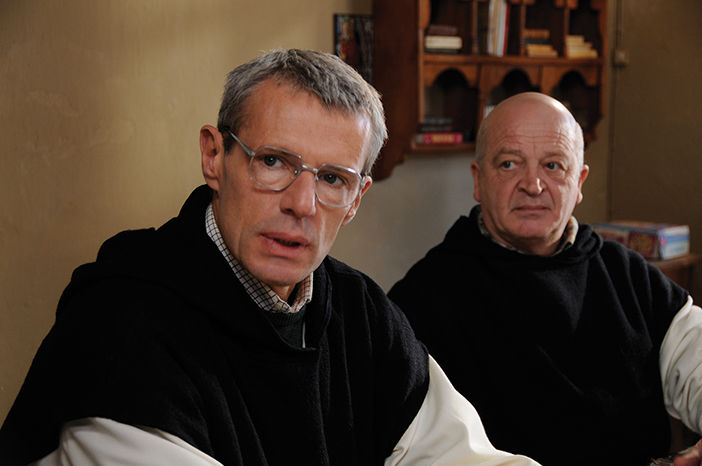When I was growing up during the last vestiges of the post-war Catholic Triumphalism of the 1960s, where every school had two classrooms for every grade and each classroom had more than 50 kids and a nun in a habit who, for the most part, maintained order in the manner of a mid-19th century Prussian cavalry officer, we heard an awful lot about martyrs and self-sacrifice.
This is not some sorrowful Lenten reminiscence with a litany of how I was scared by too-tough nuns. Although I will always remember asking Sister Angela Claire if I could get a drink of water one particularly scorching October day in the Valley.
What I got in return from Sister was a lecture about when she was a young nun in Chicago: A boy just like me asked for water and she refused. Years later, that boy returned to her as a decorated World War II pilot who had been shot down in the Pacific and survived in a raft for a week with no water.
According to sister’s account, the pilot profusely thanked her for instilling the discipline in him to help him survive the war. For me, I wasn’t sure if this story was true. … I was sure I wasn’t getting a drink of water, though.
When you’re 10, and the last “good” war was only 20-some years ago, still fresh in the memories of the adults you lived among, the thought of heroic battles with evil and fearless defense of the faith were intoxicating. Being removed by hundreds and thousands of years, we ate up stories about saints being burned alive, skinned alive and having every other horrible torture visited upon them because of their unwillingness to deny their faith in Christ.
To highlight just how divorced my childhood was from the grimmer realities of life that swirled around me, we didn’t think twice about casually crawling underneath our desks to the tune of an air raid siren’s wailing cry in preparation for a possible nuclear attack from the Russians.
Accentuating this danse macabre’s otherworldliness, none of our nuns ever crawled under their desks during these drills. I fully expected that if a 10 megaton warhead from a Russian SS-19 Stiletto ICBM made a direct hit on St. Elizabeth’s, there would be total devastation except for Sister Angela Claire, who would still be sitting at her desk, correcting our grammar papers for poor penmanship.
We get older. Sometimes we even get wiser. Fantasies of living a heroic life of danger in the face of enemies of Christ trying to force me to renounce my faith faded as the day-to-day mundanities of life took their hold.
Unfortunately, the times we live in have brought the concept of dying for one’s faith right to the top of our frontal lobes. It doesn’t seem to be such a far-fetched idea these days, and what better time to think about this than during Lent.
A segue to entertainment after talking about holy martyrs and the world on the edge of nuclear destruction seems slightly incongruous I admit, but there is a way for this all to blend together. Other people have written about Lenten films with specific elements that help concentrate the senses and put one in a more prayerful and reflective mood and there is one in particular I think deserves a look.
“Of Gods and Men,” a French film released in 2010, is based on a true story of the martyrdom of seven Trappist Monks in Algeria. The movie has a grim relevancy five years later, as we have seen other Christians meet similar fates.
All of a sudden the notion of somebody waiting to be thrown into a furnace, turned into a lion’s midday meal or just being in the wrong place at the wrong time — like a museum of antiquity — is not so comfortably remote.
“Of Gods and Men” is a beautiful film, if a film that ends with the death of the protagonists can be considered beautiful … which it can, as the actors portray men who are deeply committed to their faith and to the people (Christian and Muslims alike) for whom they minister in spiritual and material ways.
The French language, the exotic locale and the moody cinematography all conspire to give the film an aura that envelopes and allows the viewer to delve deeper into the hard choices these men must render when faith and today’s realities converge.
The monks are not one dimensional holy card cut-outs, either, as they discuss among themselves whether to stay in the monastery as the Algerian Civil War heats up at the same time Islamic extremists make it clear the monks are under threat.
Some of the monks want to stay, some of them want to run. Far removed from my carefree, invincible self in Sister Angela Clare’s classroom, I wondered what path I would choose. Thankfully that cup has not yet been offered to me, but Lent is the time of the year for such thoughts.
And a film like “Of Gods and Men” can turn an object like a television, which has the ability in so many ways to degrade and lower us, into an opportunity for grace and Lenten reflection.

